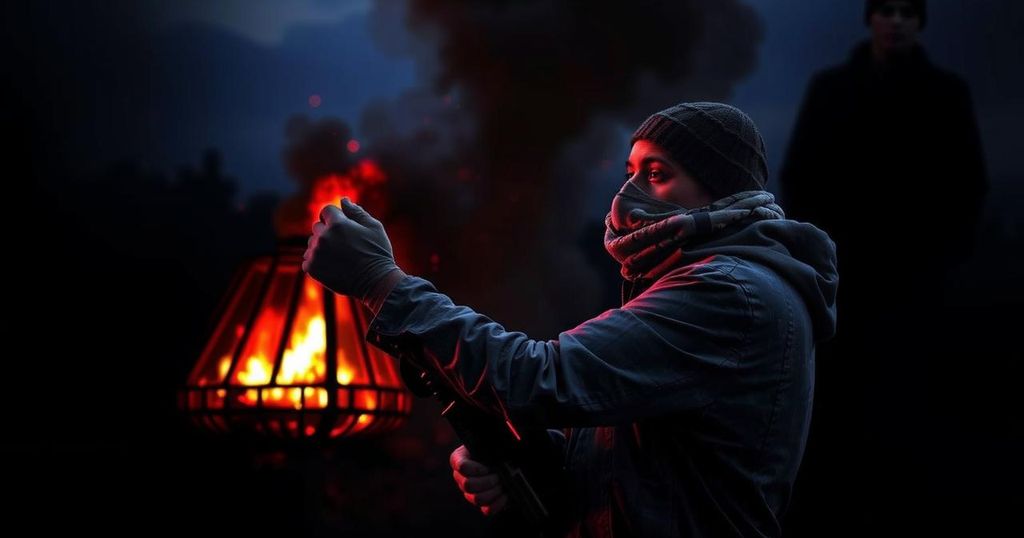The Aftermath of Sinwar’s Assassination: A New Phase in the Gaza Conflict

The assassination of Yahya Sinwar, head of Hamas, alters the dynamics of the Gaza conflict, likely emboldening Israeli Prime Minister Netanyahu to adopt a more aggressive stance. It significantly impacts the negotiation landscape and may diminish the possibility for ceasefires or hostage negotiations. Internal Israeli politics, characterized by extremism and shifting alliances, complicate prospects for peace. The potential backlash from escalating tensions underscores the precarious balance Netanyahu must maintain while navigating domestic and regional challenges.
The assassination of Yahya Sinwar, the leader of Hamas’s political bureau, may represent a critical development in the continuing conflict in Gaza, potentially justifying a more aggressive Israeli approach. The removal of Sinwar signifies a substantial shift in Hamas’s leadership dynamics, as it strips away any remaining figures capable of engaging in negotiations about hostages or ceasefire arrangements. This creates a new landscape where Israeli Prime Minister Benjamin Netanyahu may feel empowered to pursue his objectives without the immediate pressures previously posed by Hamas’s leadership. Netanyahu, buoyed by this high-profile achievement, is expected to aim for further consolidation of power, both internally and in the regional context, targeting perceived threats such as the Iranian influence, and aligning against groups like Hezbollah and the Houthis. The recent elimination of key figures in the Militant Islamic framework, including Hasan Nasrallah and Ismail Haniyeh, underscores a tactical shift that could lead to significant realignments within the political terrains of Lebanon and Gaza. Despite these developments, there remain doubts about Netanyahu’s willingness to shift to more conciliatory approaches like a ceasefire or negotiations for hostage releases. The timing, given upcoming U.S. elections, and Netanyahu’s track record of leveraging militant conflict for domestic gains, suggests he may opt for continued aggression instead of dialogue. His government has managed to deflect pressure from the United States, granting him more latitude to navigate conflicts on his terms, as evident in recent tactical decisions. This hostility is compounded by internal Israeli dynamics where hardline and extremist views shape policies, fostering a culture where conflict is seen as synonymous with survival and security. Netanyahu’s government, backed by a coalition of right-wing factions, including the flexible right that has gained traction since the mid-1990s, thrives on nationalist sentiments that disfavour any negotiations with perceived adversaries. Moreover, past political shifts, particularly after the assassination of former Prime Minister Yitzhak Rabin, have entrenched extremism in Israeli politics, complicating any potential for peace. While Netanyahu continues to benefit politically from conflict-driven narratives, there exists a delicate balance where the flexible right’s support hinges on how costly such a stance becomes. A failure to temper the ongoing aggressive posture could ultimately jeopardize Netanyahu’s political standing if the cost of conflict escalates. In conclusion, the assassination of Sinwar has opened a new chapter in the Gaza conflict, creating a complex environment politically and militarily for both Israel and Hamas. While Netanyahu may feel emboldened to pursue aggressive strategies without immediate opposition, the risks associated with escalating tensions and potential backlash from regional powers, particularly from Iran, pose significant challenges moving forward. Moreover, the internal dynamics within Israeli politics may limit his long-term effectiveness and willingness to pursue a more peaceful resolution, such as the two-state solution, which remains a vital yet increasingly elusive alternative.
The current article delves into the implications of Yahya Sinwar’s assassination on the broader Gaza conflict, contextualizing it within the complexities of Israeli politics and regional dynamics. The conflict between Israel and Hamas has long been characterized by cycles of violence and failed negotiations. The assassination of key figures in Hamas’s leadership raises questions about future dialogue and the possibility of resolution. Moreover, the internal Israeli political landscape, marked by increasing extremism, influences how leaders like Benjamin Netanyahu respond to these events. Understanding the fluctuating nature of alliances and the interplay between regional powers is essential in analyzing the potential trajectory of the conflict and its impact on the broader Middle Eastern geopolitical climate.
In summary, the assassination of Yahya Sinwar marks a pivotal moment in the ongoing Gaza conflict, potentially reshaping Israeli strategy and further entrenching domestic extremist sentiments. While Netanyahu may utilize Sinwar’s elimination to strengthen his political position, the risks involved in pursuing aggressive tactics without negotiation could backfire. The article raises critical questions about the accountability and responsibility of leadership in addressing the longstanding tensions and emphasizes the urgent need for rational dialogue to pursue lasting peace and stability in the region.
Original Source: www.dailynewsegypt.com








